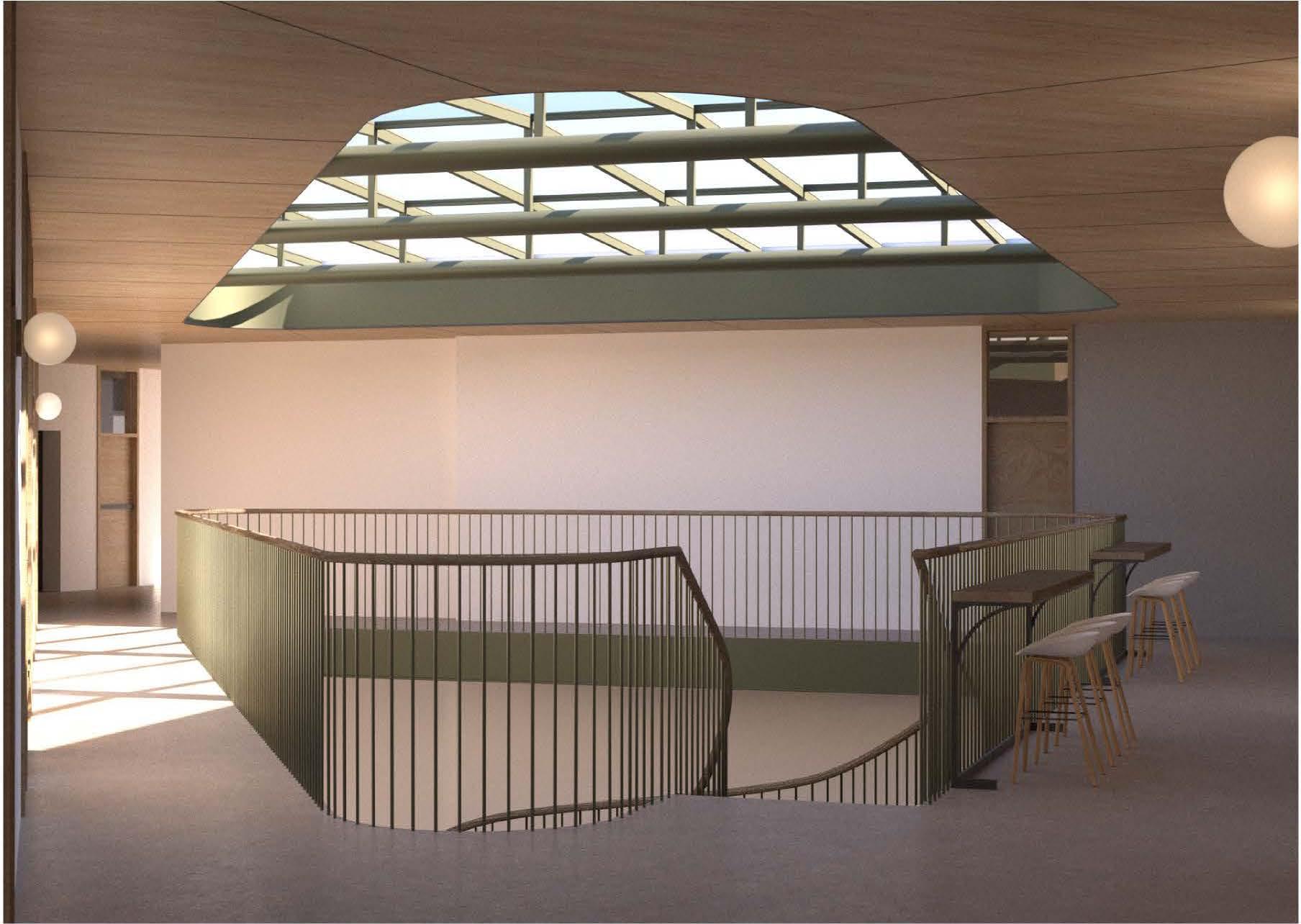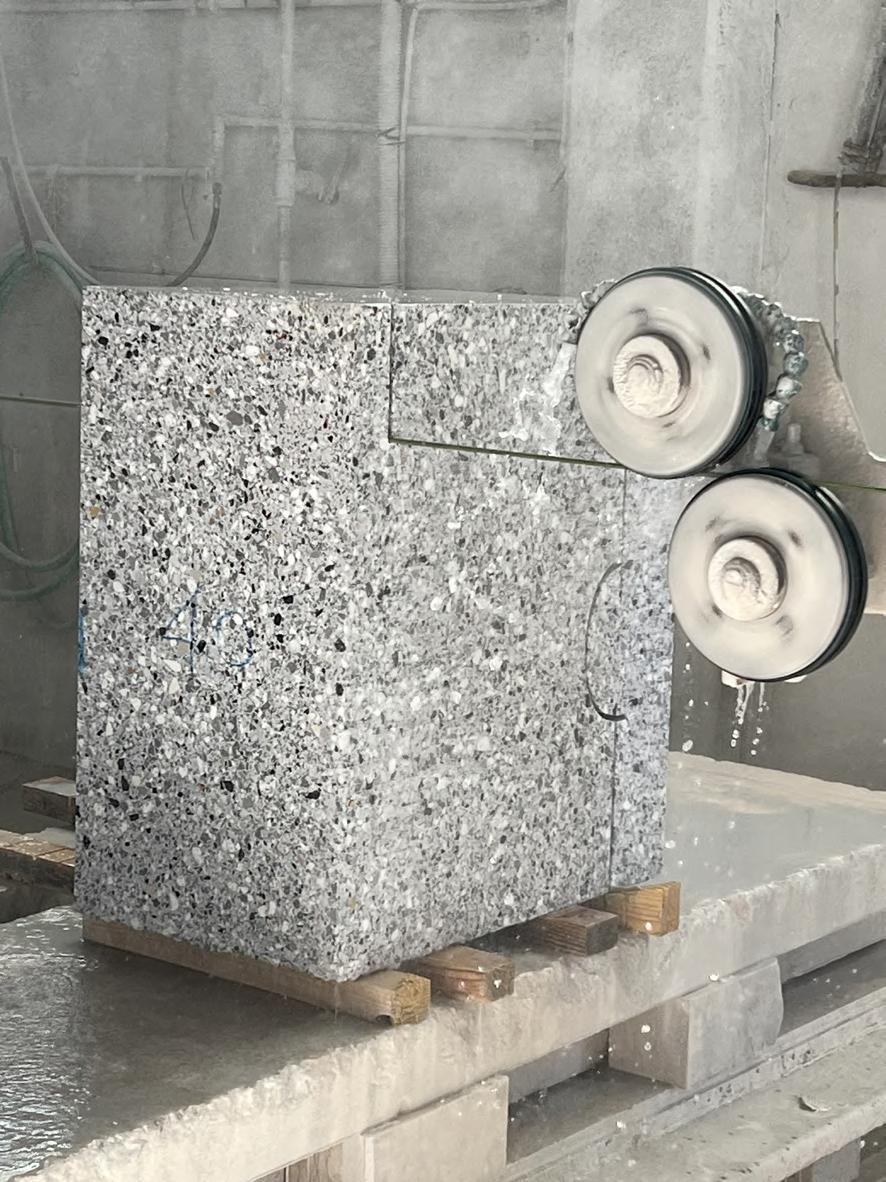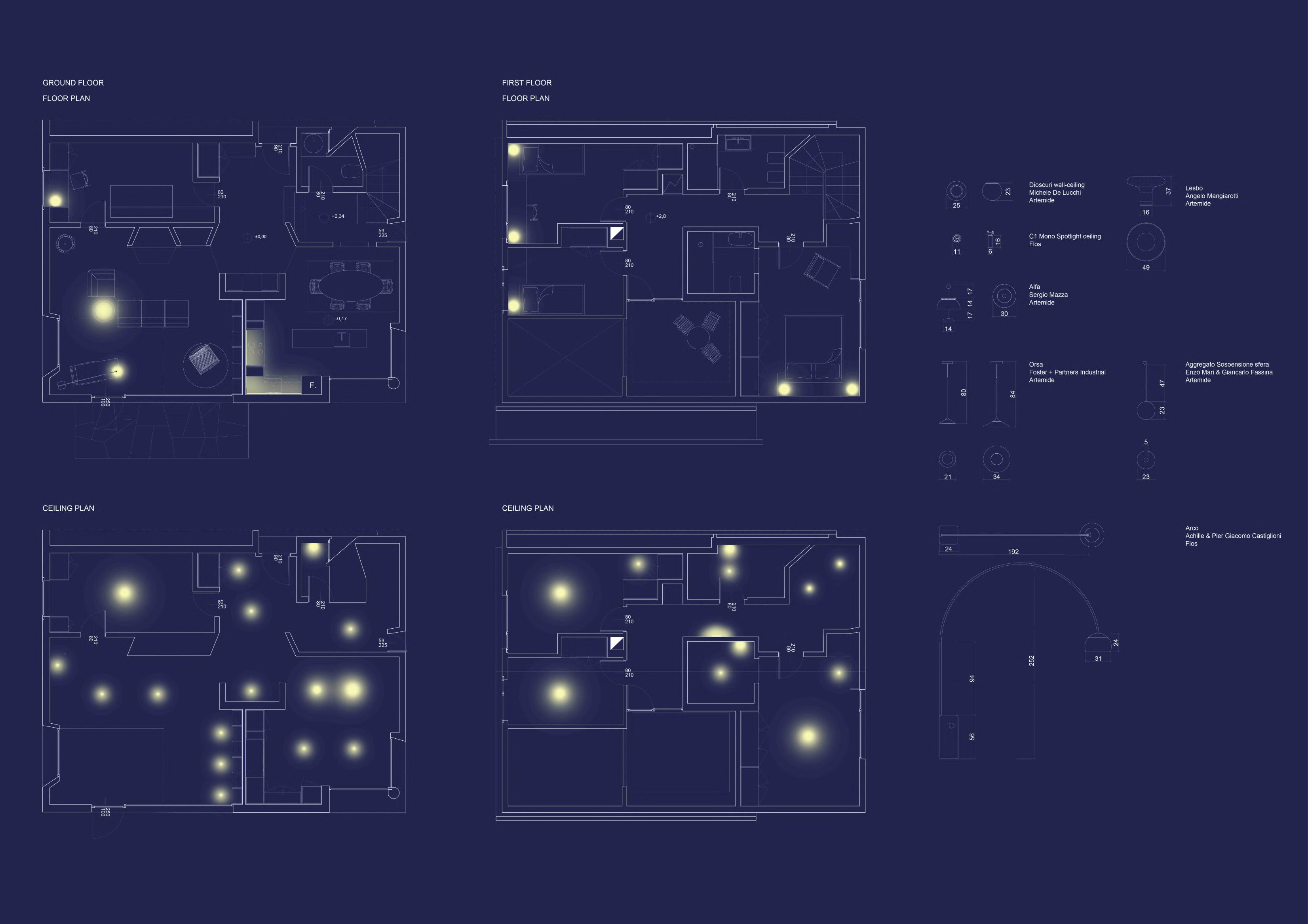Professional Experience
Feb 2024 - Aug 2024
Nov 2023 - Present
Jul 2022 - Present
Jan 2022 - Jul 2022
Oct 2021 - Dec 2021
Architectural Intern ARCHITECTUREOFFICE
Helped with various tasks regarding competition entries.
Student Mentor polimitestprep
Tutoring students for the architecture entrance exam of Politecnico di Milano.
Freelance Visualizer
Freelance
Multiple projects in production of architectural visualizations.
Architectural Intern
Studio Tartaglia Partnership
Worked on the visualizations of a residential project in Gorla, Milan
Architectural Intern
Studio Tartaglia Partnership
Participated in the design process, facade design, and architectural visualizations.
Realized Projects
March 2023
Upcycle
Milan Design Week x Agglotech
Competitions
June 2022
Children’s House - Entry
Kaira Looro
Education
Sep 2022 - Dec 2024
Sep 2023 - Jan 2024
Sept 2019 - Jul 2022
Aug 2016 - May 2018
Master of Science in Architecture, Built Environment, and Interiors
Politecnico di Milano
Erasmus+ International Mobility Programme
Politecnico di Milano
Bachelor of Science in Architectural Design
Politecnico di Milano
Bachelor of Applied Science in Civil Engineering
University of British Columbia

+39 375 683 39 89 tascioglusarp@gmail.com
Via Paolo Mantegazza, 4 20156, Milano, MI
Sono un architectural designer di 25 anni, desideroso di imparare e contribuire al campo dell'architettura e del design. Sono sempre stato molto interessato a ciò che mi circonda e, essendo originario di Istanbul, dove il vecchio e il nuovo si affiancano, credo di aver compreso presto l'importanza di un buon design e di una pianificazione attenta.
Dopo aver terminato il liceo a Istanbul, mi sono trasferito a Vancouver, BC, per intraprendere una laurea in ingegneria civile presso la University of British Columbia. A causa di difficoltà finanziarie dovute alla crisi della lira turca, ho dovuto sospendere gli studi nell'agosto 2018. È stato in quel periodo che ho capito che la mia vera passione era l'architettura. Dopo essermi classificato secondo all'esame di ammissione, ho iniziato la laurea in Progettazione Architettonica presso il Politecnico di Milano. Nel 2022 ho intrapreso gli studi magistrali in Architettura, Ambiente Costruito e Interni, ancora una volta al Politecnico. Mi sono laureato a dicembre 2024 con 110/110.
Sono appassionato di design, in particolare dei fattori che influenzano la percezione degli edifici come strutture senza tempo. Creare edifici che resistano alla prova del tempo è un tema di costante interesse per me, che credo possa essere realizzato utilizzando materiali tradizionali in modi contemporanei.
Urban Grafting
School Extension
Milan Design Week 2023
Milan Design Week 2024
Van der Ploeg House
Thesis
School Extension 2023 Educational
Milan Design Week 2023 Furniture Design
Milan Design Week 2024
Furniture Design
Van der Ploeg House 2023 Interior Design
Affacci Milanesi 2024 Thesis
The development is located at the southern end of a triangular lot, which gives the building its unique shape. The main entrance is located at the narrowest point of the triangle. Past the entrance, an arched staircase welcomes visitors. The center of the building is characterized by an atrium, which houses a flexible space, marked by the curtains that wrap around it. The curtains act as temporary walls, isolating the space within when needed. The upper floors are characterized by rooms placed along the lot boundary, while the atrium opens up the center. Each floor is provided with a common space, located at the corner, which creates an interesting setting. The façade uses brick as its facing material, establishing a dialogue with its context. The walls are curved in order to create the illusion of a massive façade, the depth of which varies through the time of the day. The synthesis of slender openings with the aforementioned curves creates an impression that evokes traditional and contemporary simultaneously.

















Urban Grafting 2022 Hospitality
School Extension 2023 Educational
Milan Design Week 2023 Furniture Design
Milan Design Week 2024
Furniture Design
Van der Ploeg House 2023 Interior Design
Affacci Milanesi 2024 Thesis
The project was to convert an unused urban plot, formerly home to Casalpusterlengo’s Consorzio Agrario, into a new educational hub in line with Casalpusterlengo’s role as a regional academic center. The complex is designed to include an enlargement of the town’s high school, a dormitory, and an exhibition hall, interlaced by a public park that develops throught the whole site. The buildings are placed in order to define different thematic urban squares. The school extension, following the inclination of the existing school, creates a new square between the old and new volumes while opening an urban corridor connecting the existing parks to the new public park. The dormitory and the exhibition building split the space in a similar fashion while activating the urban space through dedicated ground floor functions.














Urban Grafting 2022 Hospitality
School Extension 2023 Educational
Milan Design Week 2023 Furniture Design Furniture Design
Milan Design Week 2024
Van der Ploeg House 2023 Interior Design
Affacci Milanesi 2024 Thesis
Terrazzo was originally conceived as a way to use up discarded marble chips and aggregates. Terracycle is a project that started with the idea of upcycling terazzo itself in order to continue the cycle into a endless circular process. This project was made possible by Agglotech, the architectural terazzo company, to experiment with the possibility of reusing discarded terazzo. Terracycle transforms recycled terazzo, upcycling it into premium furniture through a seven step process, generating not only a sustainable life path for the waste product, but also adding value to it through design. The prototypes are a chaise-longue and an accompanying coffee table, which were designed with a curvy and soft, but at points rigid, geometry in mind, to create a perception of a heavy, stone-like material in an unusual form. The fluidity of the lines breaks the weight of the terazzo, forming sculpture-like furnitures of stone. The curviness is checked through the intervention of straight lines to settle on a more balanced language.

The furniture are exhibited openly, so that anyone can sit, touch, and experience the material. The chaise-longue was chosen as the main typology due to its sculptural properties, which were thought to display the material at its best quality. It speaks a language made up of curves, but is well-grounded at the points where it touches the ground. Its large surface area acts as a large canvas to showcase the rich texture of the material. A natural companion to the chaise lounge was the coffee table, which was designed to be light enough to be transported with ease. The curved surface at the top is crafted to be suitable for a book or a magazine, while the hollowedout bottom provides space for storage while lowering its weight.





Name A New School in Viale Sarca Type Year 2021Educational
Urban Grafting 2022Hospitality
School Extension 2023Educational
Recognizing the sturdy nature of Terrazzo the project
Milan Design Week 2023Furniture Design Furniture Design
Milan Design Week 2024
Van der Ploeg House2023Interior Design
Affacci Milanesi 2024 Thesis
Costellazioni di Giunti aims to contest the material’s prevalent characteristics by offering a design resolution embedded in flexibility, fluidity and playfulness. Having drawn inspiration from the brilliant pieces of Angelo Mangiarotti, a set of ten differing terrazzo elements was developed. The main joints resembling a four-pointed star together with the elongated components of varying lengths, as well as all their eccentric derivatives present an opportunity to form a rich assortment of diverse, yet relating furniture.



New School in Viale Sarca
Urban Grafting 2022Hospitality
School Extension 2023Educational
Milan Design Week 2023Furniture Design
Milan Design Week 2024
Furniture Design
Van der Ploeg House2023Interior Design
Affacci Milanesi 2024Thesis
The project consists of the remodeling of the interiors of a mountain house, designed by Rudolf Olgiati in 1966, located in Laax, Switzerland.The original layout of the ground floor was an open plan, except for the entrance with the staircase and the service bathroom. The idea was to define the spaces through a central distribution area, which required moving the staircase to the North East corner. This helped with the layout of the upper level given the very limited height; it was useful having the staircase and other services located in the lower areas. The number of bedrooms was kept the same. A master bathroom was placed in the center of the plan, which was used to define the circulation of the upper floor. This was reflected in the material choices, the bathroom walls being white, surrounded by the walls of the corridor cladded with wooden panels. Finally, a double height space was created in the living room, taking advantage of existing window placements to enhance the space.










A New School in Viale Sarca Type Year 2021Educational
Urban Grafting 2022Hospitality
School Extension 2023Educational
Milan Design Week 2023Furniture Design
Milan Design Week 2024
Furniture Design
Van der Ploeg House2023Interior Design
Affacci Milanesi 2024 Thesis
Co-supervisor: Joseph Rigo
Group: Costanza Franco, Sarp Taşcıoğlu
In a world increasingly dominated by the International style, post-war Milanese architecture held a unique place amongst its peers, adopting the new methods of the modern world, while not losing touch with its context and character. In addition to the iconic buildings produced by the skillful architects of the period, a common language was established, which came to design the aesthetics of the city. While extensive research has explored this architectural landscape, our focus is on understanding the levels of depth and complexity that these buildings possess, showcased in their unique details. We have chosen to scrutinize the openings and their integrated elements, since within them lie part of the peculiar aspects and details that are common in the architecture of the period.
This paper aims to evaluate these elements, defining typologies, proportions, and recurring motifs, culminating in a detailed catalogue aimed at fostering a deeper appreciation of Milan’s architectural heritage. Our selection of case studies will be guided by a set of parameters: time frame (1945-75), location (Milan), complexity of details, availability of research materials, and personal preferences. The study will be carried out through textual descriptions, drawings, and pictures. Ultimately, our aim is to categorize and synthesize our findings, offering a structured exploration of Milanese post-war architecture that sheds light on its diverse nuances and contributions to the architectural discourse.
My contributions to the project: everything was done in collaboration with my co-author. Softwares used: Word, Autocad, Rhino 3D, Photoshop, and Indesign.




GPA MONTI, 1959-1961
VIA DELIO TESSA 2
This work by GPA Monti, consisting of a tall tower and a shorter, L-shaped volume is a good example of the conservative Milanese modernism of the time. The tower roughly follows the lines of its neighbor across Via Delio Tessa, taller towards Corso Garibaldi, shorter towards Via San Simpliciano. The ground floor showcases the structure of the building by exhibiting the size and span of its pillars. Although unified stylistically, the ground floors of the two volumes exhibit a drastic difference in height, which splits the two volumes visually, a rift further reinforced by the incision between them along the structural joint. The tower’s facade is treated conservatively until the height of its older
Questo lavoro di GPA Monti, composto da una torre e da un volume più basso a forma di L, rappresenta un buon esempio del modernismo milanese conservatore dell’epoca. La torre segue approssimativamente le linee del suo vicino sull’altro lato di Via Delio Tessa: più alta verso Corso Garibaldi e più bassa verso Via San Simpliciano. Il piano terra mette in evidenza la struttura dell’edificio, mostrando le dimensioni e l’estensione dei suoi pilastri. Sebbene unificati stilisticamente, i piani terra dei due volumi presentano una notevole differenza di altezza, che li separa visivamente; questa divisione è ulteriormente sottolineata dall’incisione lungo il giunto strutturale. La facciata della torre è trattata
Catalogue of the case studies


